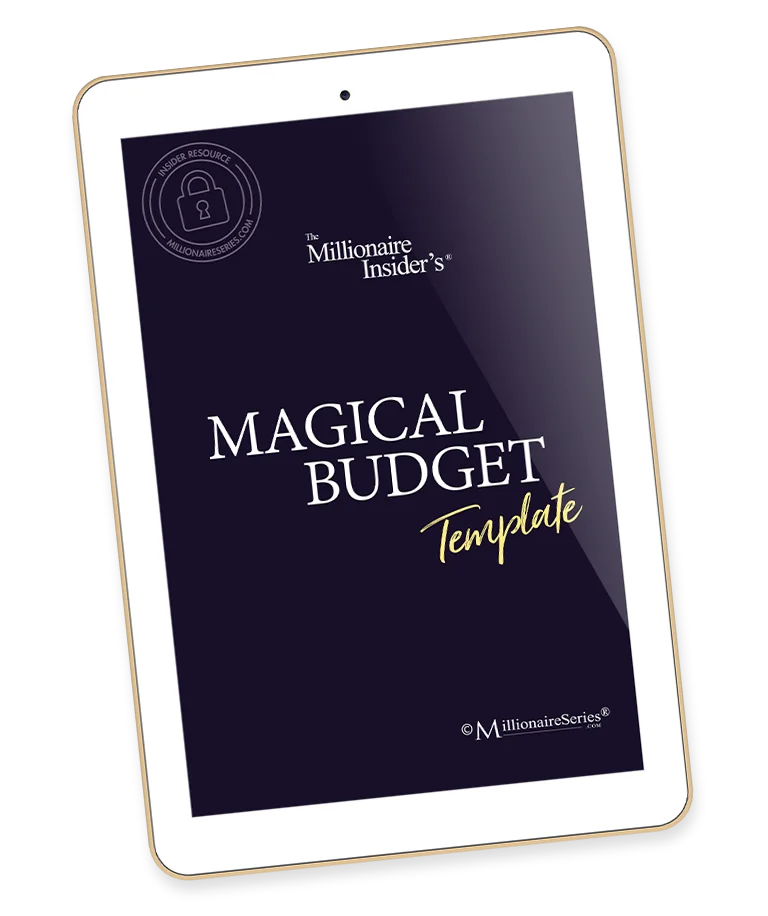Financial literacy is a fundamental skill that everyone should possess to manage their personal finances effectively. It involves understanding various financial concepts, such as budgeting, saving, investing, and debt management, to make informed decisions about money matters.
Today, we will explore what financial literacy entails, its importance, its implications, and practical steps to enhance your financial literacy.
Disclosure
All materials and intellectual property are copyrighted by MillionaireSeries.com®.
This information is for educational purposes only. It is not intended to replace any advisor or specialist or provide any investment, financial, tax, retirement, planning, or healthcare advice.
By reading this, you agree to hold MillionaireSeries.com® and its affiliates harmless for results achieved or not achieved.
What is Financial Literacy?
Financial literacy refers to the ability to understand finances. It helps you to make informed and responsible financial decisions and encompasses a wide range of topics, including:
1. Budgeting
Creating and maintaining a budget to manage income and expenses efficiently.
If you need a spending plan, click here:
2. Saving
Understanding the importance of saving money for emergencies, future goals, and retirement.
3. Investing
Learning about different investment options and strategies to grow wealth.
4. Debt Management
Understanding various types of debts, interest rates, and how to handle them responsibly.
5. Financial Vehicles
Understanding financial products like credit cards, insurance, and loans.
6. Taxes
Understanding the basics of taxation and filing tax returns.
7. Financial Goal Setting
Establishing clear and achievable financial objectives.
Important Financial Terms
Here is a list of some important financial terms and their definitions:
Assets
An asset is something you own. Examples include cash, real estate, stocks, and bonds.
Liabilities
A liability is a debt or obligation owed by you. This includes loans, mortgages, and credit card balances.
Income
This is money received from various sources, such as salaries, wages, investments, and business profits.
Expenses
An expense is incurred to operate a household, business, or organization. It includes rent, utilities, groceries, and other day-to-day expenses.
Budget
This includes expected income and expenses, usually monthly or annually, over a specific period.
Net Worth

This is a measure of one’s overall financial health. Your net worth is the difference between your assets and liabilities.
Interest
This is the cost of borrowing money or the return earned on investments.
Inflation
This includes the increase in the price level of goods and services over time. Over time, it leads to a decrease in the purchasing power of money.
Compound Interest
This is interest that is calculated on the initial principal and interest. It allows investments to grow faster over time.
Diversification
Spreading investments across different assets or sectors reduces risk and enhances potential returns.
Stocks
This includes ownership shares of a company. Investing in stocks means becoming a shareholder with a claim on the company’s assets and profits.
If you have questions or need support, click here:

Bonds
These are debt securities issued by governments or corporations to raise capital. Bondholders receive regular interest payments and the return of the principal amount upon maturity.
Mutual Funds
These are investment vehicles that pool money from multiple investors. Mutual funds are invested in a diversified portfolio of stocks, bonds, or other assets.
401(k) / Retirement Account
These assets are tax-advantaged savings accounts employers offer to help employees save for retirement.
Credit Score
A credit score is a prediction of your credit behavior. Examples include your ability to pay a loan back on time. Your score is based on information from your credit report.
Debt-to-Income Ratio

This ratio measures your monthly debt payments relative to your monthly income. It is a measurement of your financial health.
Compound Annual Growth Rate
This is the average annual rate of return on an investment over a specific period, considering compounding effects.
Emergency Fund
This money reserve is set aside to cover unexpected expenses or financial emergencies. Investing your emergency fund in a bank account and including three to 12 months of expenses is recommended.
Risk Tolerance
This consists of a person’s ability to tolerate fluctuations in the value of investments without feeling excessive stress.
Financial Planner

A financial advisor or planner guides individuals and families in creating a financial plan. They also focus on managing money and helping their clients achieve their financial goals.
Dividends
These are payments made by companies to their shareholders as a portion of their profits.
Capital Gains
These are profits earned from selling an asset at a higher price than its purchase price.
Recession
This is a significant decline in economic activity lasting for an extended period, leading to reduced production, consumption, and employment.
Asset Allocation
This is the process of dividing an investment portfolio among different asset classes (e.g., stocks, bonds, cash) to achieve specific financial objectives.
Roth IRA

This is a retirement savings account. The contributions to a Roth IRA are made with after-tax dollars. The funds grow tax-free, and the withdrawals are tax-free.
These are just a few essential financial terms that are important to understand when managing personal finances or investing. Knowledge of these concepts can help you make better financial decisions and plan for a more secure future.
Why is Financial Literacy Important?
1. Security
Financial literacy empowers individuals to take control of their financial lives, reducing stress and providing security with money matters.
2. Better Decision Making
With financial literacy, people can make well-informed spending, investing, and saving decisions, leading to better financial outcomes.
3. Reduction of Debt
Financially literate individuals are less likely to incur debt. They are generally better equipped to manage their current debts.
4. Financial Security
Being financially literate helps build a strong foundation for long-term financial security, supporting retirement planning and achieving financial goals.
If you are ready to create a secure financial future, click here:
5. Economic Stability
Financial knowledge contributes to more financial stability and growth. It also helps you to make more prudent money choices.
6. Protection against Scams
Financial literacy aids in recognizing and avoiding financial scams and fraudulent schemes.
What Does Financial Literacy Mean?
Financial literacy extends beyond knowing the definitions of financial terms. It involves practical application and an understanding of financial concepts.
Let’s review what it means to be literate with money:
1. Understanding Financial Concepts

Being familiar with concepts like compounding, inflation, risk, and diversification to make informed decisions.
2. Making Budgeting a Habit
Creating and following a budget to track income and expenses, ensuring financial discipline.
3. Savings Culture
Cultivating a habit of saving regularly and understanding the benefits of compound interest.
4. Investment Knowledge
Acquiring knowledge about various investment options, such as stocks, bonds, mutual funds, and real estate.
5. Debt Management Skills
Understanding the implications of debt, separating good and bad debt, and developing strategies to repay debts efficiently.
If you need support with your money and mindset, click here:
6. Financial Planning
Creating a personal financial plan to achieve short-term and long-term goals.
7. Risk Management
Understanding insurance and risk management to protect against unforeseen circumstances.
How to Learn Financial Literacy
1. Educate Yourself
Education is essential to learning more about finances, including educating yourself. The Millionaire Insider® offers free financial education materials to help you on your journey.
Another option is to take a course or join a mastermind. The Millionaire Insider® Wealth Academy’s mission is to provide practical information on creating a financially secure future.
2. Consult a Financial Advisors
Hire a Certified Financial Advisor™ who can guide you in creating a financial plan.
3. Create a Budget
Start by tracking your expenses. Then create a spending plan, including your income and expenses. If you need help, use an app.
4. Read Financial News

By reading financial news, you can get insight into the economy and financial markets.
5. Research Investment Options
First, assess your risk tolerance. Then, determine the best allocation for your portfolio for you.
6. Learn from Personal Experiences
Reflect on your financial decisions and experiences to understand what works best for you and what needs improvement.
7. Seek Guidance from a Financial Coach
Hiring a financial coach can help you create a money mindset and a plan for your financial future. If you need investment advice, hiring a financial advisor is best.
8. Set Financial Goals
This includes identifying clear and achievable financial goals. Examples include saving for an emergency fund, paying debts, or planning retirement.
9. Review Your Progress
Regularly review your financial plan and track your progress. Adjust your strategies as needed and celebrate milestones achieved.
Empowering Your Financial Future
Empowering your financial future is a journey that begins with taking control of your finances.
It also includes making informed decisions and developing healthy financial habits.
Taking charge of your financial well-being is paramount. Let’s explore some critical steps to empower your financial future.
1. Set and Achieve Goals
Start by defining your short-term and long-term financial goals. If you want support setting goals so you can achieve them, click here to download our guide:
Whether saving for a dream vacation, buying a house, or planning for retirement, having specific and achievable goals provides direction for your financial journey.
2. Create a Budget
A budget allows you to track your income and expenses. It provides insight into your spending patterns and identifies areas where you can save and invest more effectively. It also helps you prioritize your financial goals and avoid unnecessary debt.
3. Build an Emergency Fund
Life is full of unexpected events, and having an emergency fund can act as a safety net during challenging times.
Aim to save three to six months’ living expenses in an easily accessible account to cover unforeseen circumstances without disrupting your long-term financial plans.
4. Reduce Debt and Manage Credit Wisely
High-interest debts can be a significant obstacle to a secure financial future. Develop a debt repayment plan by focusing on high-interest debts first while making timely payments on other obligations.
Moreover, manage credit cards responsibly, ensuring you maintain a healthy credit score, which can open doors to a brighter financial future.
5. Invest for the Future

Investing is a key component of wealth-building and financial empowerment. Consider various investment options, such as stocks, bonds, mutual funds, and real estate, to grow your money over time. Diversifying your investments can mitigate risks and potentially increase returns.
6. Educate Yourself about Finances
Financial literacy is the foundation of financial empowerment. Take the time to educate yourself about personal finance concepts, investment strategies, and money management principles. Numerous resources are available, including books, articles, online courses, and workshops.
7. Seek Professional Guidance
Financial decisions can be complex. Seeking advice from a Certified Financial Planner™ or advisor can provide valuable insights tailored to your situation. A financial professional can help you create a comprehensive plan aligned with your goals and risk tolerance.
8. Stay Committed to Your Plan
Achieving financial empowerment requires discipline and commitment. Stay focused on your financial goals, avoid impulsive spending, and stay on track with your budget and investment strategy. Consistency is key to long-term success.
If you don’t have an effective retirement plan or want to make sure it is in order, click here to download the checklist:
9. Review and Adjust Regularly:
Life is dynamic, and your financial plan should adapt to changing circumstances. Regularly review your financial progress, adjust your goals, and make necessary changes to your budget and investment portfolio as needed.
10. Cultivate a Positive Money Mindset:
A critical step is to believe in your ability to achieve financial empowerment.
Cultivate a positive money mindset that promotes responsible financial behaviors. Continue to improve your confidence in decision-making and your willingness to learn and grow.
Conclusion: “Financial Literacy – Empowering Your Financial Future”

Financial literacy is a valuable life skill. It equips individuals with the knowledge and confidence to navigate the complexities of personal finance successfully.
Understanding the significance of financial education and taking proactive steps to improve it can pave the way for a secure future.
Empowering your financial future is a personal journey that requires dedication, knowledge, and resilience. You can gain control over your finances by setting clear goals, creating a budget, investing wisely, and staying committed to your financial plan.
Remember that financial empowerment is not an overnight process. A continuous effort can lead to greater financial freedom and the ability to turn your dreams into reality. Start today and take the first step towards a more fulfilled and secure financial future. This will help you achieve greater financial well-being and prosperity.

